
ARE THERE IMMUNE HACKS THAT MIGHT PROTECT AGAINST THE VIRUS?

These are the recommendations I am giving to my family and friends. Some of this is common knowledge—and common sense. Some of it is controversial, particularly my neutraceutical recommendations. Follow CDC guidelines.1. Obviously. Meticulous handwashing (soap is better than hand sanitizer!). Viruses hate soap!
Don’t touch your face, and avoid crowds and maintain social distancing with some type of mask and potentially glasses to prevent aerosols from contacting mucus membranes. Two people wearing masks significantly reduces the rate of virus transmission –even if one of them is a Covid-19 carrier!
Optimize your personal health. Stop smoking– if you smoke. Lose weight if you are overweight, eat healthy foods especially plenty of vegetables of all colors, get plenty of sleep, avoid stress. If you have diabetes or hypertension, make sure it is under control. If you are immunosuppressed due to chemotherapy or organ transplantation, staying at home may be the best option. Exercise! Exercise improves overall fitness, which can boost your immune system.
Meditate
Now, with the time we have at home, with our lives as we know them upended and destined for change in the foreseeable future, and with fears related to uncertainty, it is time to learn the valuable skill of meditation. Meditation also positively affects our responses to stress, pain, disease, and depression and has been increasingly adopted by Western health care practitioners.
Vitamins, cofactors, and neutraceuticals?
Because of my interest in neutraceuticals and vitamin treatments, I have been asked in the midst of this Covid-19 pandemic what can be done to enhance immunity, either to prevent the virus, or to lessen its severity if it strikes. I compiled my list after doing lots of research on-line (too much time on my hands and too much to worry about) and by talking to some colleagues. This is NOT completely based on science.
Vitamin D
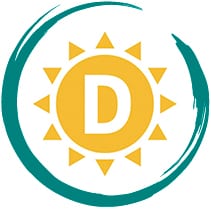
CDC recommends Vitamin D supplementation in the Covid-19 outbreak.
Vitamin D is a fat soluble vitamin that has an important role in immune function. Vitamin D is both anti-inflammatory and upregulates the function of immune cells. Patients that have Vitamin D deficiency are more susceptible to bacterial and viral lung infections, and vitamin D supplementation may help fight them. Vitamin D supplementation appears to diminish the risk of acquiring viruses such as influenza, so it is logical that supplementation might also be beneficial to reduce the risk of Covid-19. Vitamin D may also may modulate the cytokine storm which can occur during an infection and often accounts for rapid deterioration, so it may also be protective for Covid 19 complications. While there is no evidence that it can prevent Covid-19 infection, low levels can result in a higher incidence of respiratory infections.
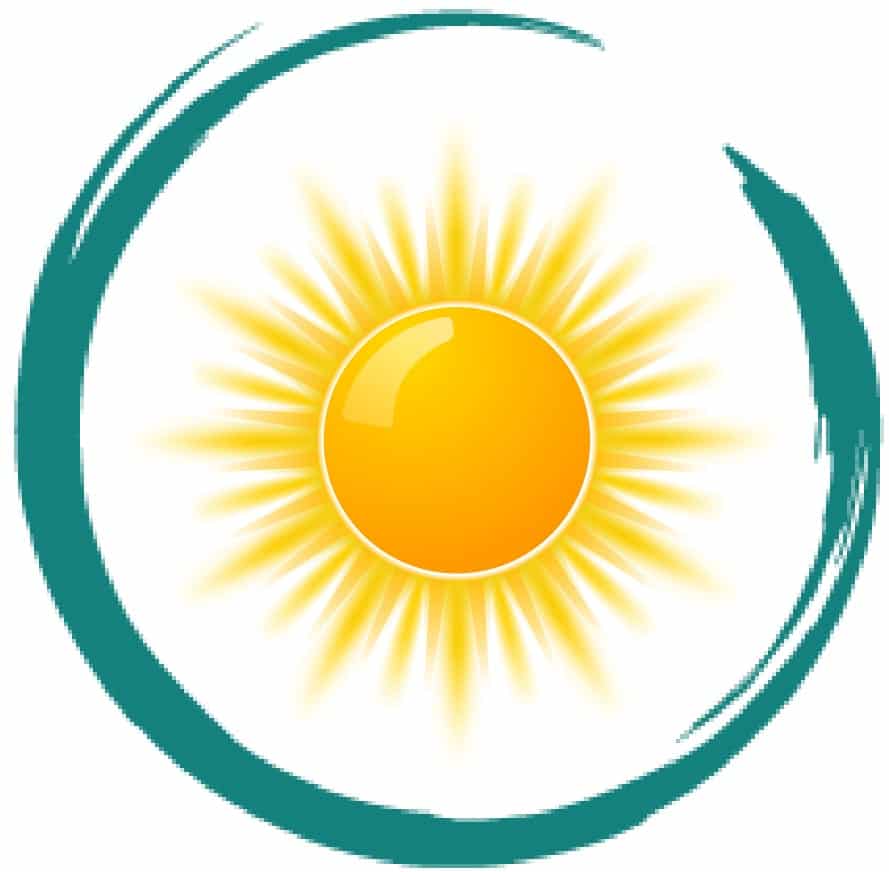
It is difficult to get Vitamin D through diet so supplementation is recommended. Both Vitamin D2 and D3 are available as supplements—D3 is produced on the surface of the skin in response to ultraviolet light, or from egg yolk or fatty fish (supplementation with D3 oil in doses from 1000 IU may be beneficial—higher doses can lead to nausea, vomiting, frequent urination, and kidney stones). D2 is synthesized from plants and mushrooms. D3 is more stable than D2 and seems to produce better elevation of blood levels.
Vitamin C
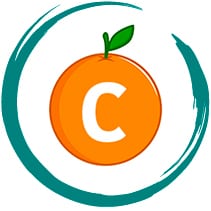
Vitamin C is a potent antioxidant vitamin necessary to immune function. It may improve the immune function of white blood cells, and interfere with the replication of viruses, and produce effects similar to those of many antioxidants. Currently there is no clear evidence that supplementation beyond what we get from diet is useful, but there is evidence it may have antiviral effects.
Vitamin C in high doses does shorten the duration of herpes virus infections and reduces the incidence of postherpetic pain. It has been suggested that it is useful in the treatment of Influenza A lung infections in high doses.3
Adult men are recommended to ingest at least 90-100 mg a day, and adult women should consume at least 75 mg. People who smoke should add 35 mg to their recommended dose, as smoking depletes the body of available vitamin C. High dose Vitamin C can cause kidney stones, as well as nausea and vomiting.
Vitamin B and E
Most vitamins are vital to immune function and are necessary in various biochemical pathways. In Vitamin B deficient adults, there is definite evidence to suggest that the ability to fight infections—and cancer—are impaired. B-12 supplementation in normal multivitamins, probably taken every other day may be helpful but high dose B-12 does not appear to impart any special benefit to fight the coronavirus.
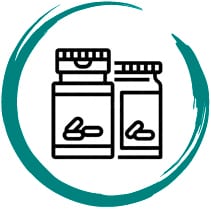
Trace Minerals—Selenium, Zinc, Magnesium
There is no evidence that these minerals actually prevent viral infection, but some evidence that deficiencies can enhance the progression of certain viruses. These minerals are available as supplements but enough can be consumed by eating a varied diet including brazil nuts (selenium), chicken, turkey and lentils (selenium and Zinc)—and zinc is found in high concentration in beef, oysters and wild rice. Magnesium is present in swiss chard, spinach, kale and other dark leafy greens.
Supplements and herbals
I am not a naturopath but am really interested in herbal medications and have read on some of the benefits of the compounds listed below. I have done my research and am taking them, but have no clear idea whether they are of benefit in the prevention or treatment of Covid -19. Interestingly, they all are helpful in the laboratory at inhibiting many strains of virus, and in nontoxic doses, could either be helpful, or potentially harmless.
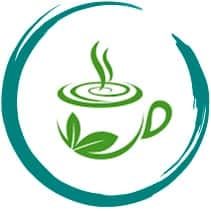
Green Tea
Green tea may have multiple benefits in improving brain function, lessening heart disease, controlling diabetes, and in preventing cancer. Green tea contains multiple powerful antioxidants. L-theanine, an amino acid in green tea crosses the blood brain barrier and produces antianxiety effects—useful in these stressful times. It also contains quercetin (see below). Some studies show that drinking large amounts of tea decrease flu and cold duration and lessens their symptoms.
Too much green tea is no good and there are patients that have reactions, so it is best to start low and slow or, better yet, speak with your primary physician prior to adding it to your regimen.
Quercetin
Quercetin is not just found in green tea. It is found in onions, peppers grapes, green apples, tomatoes, broccoli, red leaf lettuce, asparagus, red wine and black tea. Like other bioflavonoids, it is a powerful antioxidant.
However, quercetin has a unique chemical structure that may block certain receptors on cells to which the coronavirus attaches, not allowing the virus to attach and thus preventing it from replicating itself within cells and spreading the infection from cell to cell. There is evidence in the lab that quercetin blocks the SARS coronavirus from entering cells. This does not in any way suggest that similar things might be happening with Covid-19, especially in live humans, but a clinical trial has commenced exploring this.
At this point, all one can say is that quercetin has the possibility of being beneficial. It may act to slow the infection rate or limit its progress.
Quercetin is available as a dietary supplement in doses of 500 to 1000 mgs and the amount we get in our diets is considerably less (~100 mg). It is suggested that if kidney problems are preexistent, that this supplement should not be taken.
Liposomal glutathione
Glutathione is an antioxidant produced in all cells in the body, and synthesized particularly in the liver. It is a detoxifier and an immune enhancer. It is composed of three amino acids—glutamine, glycine and cysteine. These amino acids are available in the diet, especially in beef, garlic, spinach, and asparagus. Several vitamins/minerals and nutraceuticals mentioned above facilitate the production of glutathione, including selenium and vitamins C and E.
As we age, our glutathione levels decrease. Glutathione levels are reduced in chronic stress, from pollutants (insecticides, smoke), in patients with poor nutrition or who have conditions such as HIV or cancer. Supplementation benefits these individuals.
Doses of glutathione of 500-1000 mg/day in one study of a small group of patients were found to have equal efficacy in enhancing immunity.6 Gluthathione is a potent detoxifier and boosts immunity.
Elderberry
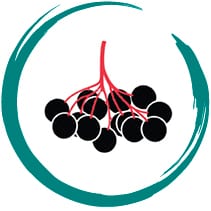
Elderberry bark, leaves, young buds, flowers and fruit can be used to make jam. Elderberry when unripe or uncooked can be poisonous, but in supplements may have a beneficial effect in preventing influenza virus, reducing the duration of symptoms, and in treating complications. Elderberry flower extracts have potent effects in the lab against upper respiratory infections such as influenza a and b.
Elderberry appears to act in a variety of fashions: it binds to the virus to prevent it from entering the cell, and most importantly, it may prevent transmission of the virus into other cells. The effects in influenza are similar to the benefits of drugs such as Tamiflu. Elderberry may act as an antioxidant, preventing the propagation of cell damage seen during cytokine storm.
In a human study of patients with the flu or symptoms of the cold, elderberry appeared to reduce the duration of symptoms.
You can find out more about Eldeberry and recommended doses and precautions on WebMD.7
Caution must still be exerted when suggesting these supplements, because there is no evidence that the novel coronavirus behaves in the same way as influenza.
Aspirin
Because of the microembolic phenomena (lots of clots) seen in patients with Covid-19, it has been suggested that Aspirin may be beneficial. Aspirin reduces platelet aggregation (blood thinner) inhibits virus replication, reduces inflammation, and protects against lung injury.
A clinical trial is underway in patients to see if aspirin is beneficial.
It seems reasonable (in my view) to begin low dose aspirin (81 mg) if there are no contraindications to its use such as aspirin allergy or history of bleeding issues, gastric ulcers, etc.
THE ABOVE DOES NOT CONSTITUTE MEDICAL ADVICE. ANYTHING TAKEN IN QUANTITY CAN CAUSE SIDE EFFECTS AND INTERACT WITH PRESCRIPTION MEDICATIONS YOU MAY BE TAKING. YOU SHOULD CONSULT WITH YOUR PHYSICIAN BEFORE ADDING ANYTHING TO YOUR DAILY REGIMEN.
- Prevent Getting Sick – Centers for Disease Control and Prevention
- Mindfulness meditation and the immune system – NCBI
- The antiviral properties of vitamin C – Researchgate
- Vitamin C Infusion for the Treatment of Severe 2019-nCoV Infected Pneumonia
- Coronavirus 2019 (COVID-19)- Using Ascorbic Acid and Zinc Supplementation (COVIDAtoZ)
- Oral Supplementation With Liposomal Glutathione Elevates Body Stores of Glutathione and Markers of Immune Function
- ELDERBERRY – Vitamins & Supplements
- Protective Effect of Aspirin on COVID-19 Patients (PEAC)

